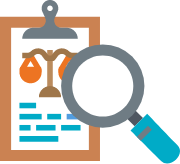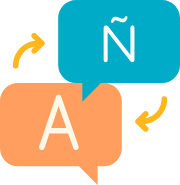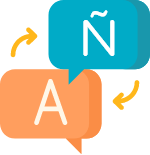Result for Toolkits
Interpreters Bilingual, bicultural advocacy is the best way to accomplish accurate, timely communication with survivors of domestic and sexual violence. When bilingual advocates are not available, professional, culturally competent interpreters are critical to ensuring equal access to safety. It is never recommended to use friends, family members or other survivors as […]
Bicultural and bilingual staff A staff that reflects the languages and cultures in your community is best positioned to provide all survivors with meaningful access to your advocacy services. Bilingual advocates can speak directly and unambiguously to survivors, determine if they are safe, inform them of services available, and assess whether […]
Identifying spoken language Languages that you have never heard before might be hard to identify—an important first step in finding an interpreter! There are a few strategies to try. Language identification cards & posters If you are working in person with a survivor who is unable to tell you the English […]
Strategies for language accessibility There are many ways to increase language accessibility. This section of the toolkit explores strategies to enhance how you provide access (interpretation and translation) to the languages spoken by survivors in your area. Note: interpretation and translation should not be used interchangeably. Interpretation involves conveying information orally […]
Document your work Programs should document their Language Access Plans, policies, and implementation steps as evidence of compliance with Title VI. Your abilities to document the accessibility measures you provide for survivors with LEP, with full consideration for the survivors’ safety, confidentiality, and privacy, serve as testimony of your program’s internal […]
Resource building The federal guidance notes that a small program “where contact is infrequent, [or] where the total cost of providing language services is relatively high” may not have the same obligations to meaningful access as do larger, better-resourced programs. However, because sexual and domestic violence programs provide services considered “crucial […]
Implementation Use the Language access plan template, Sections 1C “Capacity-Building” and 3 “Monitoring” for building staff work plans: Assign responsibility for all tasks: direct services tasks, that is, how to provide language access services to survivors with LEP management tasks such as selecting, procuring, and organizing translated written material; […]
Session 3 Purpose: This is the session where the enhancements to your current Plan really start to come together. This is a working session where specific goals, strategies and timelines will be proposed. Create a plan for improvement (services, outreach, systems change) There is no “one size fits all” standard for […]
Session 2 Purpose: The purpose of this session is to look at your organizational and community realities to define what “reasonable steps” your organization should or could take to provide meaningful access at this point in time. Discuss the following items among the group: What did the research reveal about: […]
Session 1 This session is focused on exploring why language access is important to your organization and how it relates to your mission. The outcome of this session is the development or review of the foundation for the overall plan. Discuss these five questions among the group What are the benefits […]









